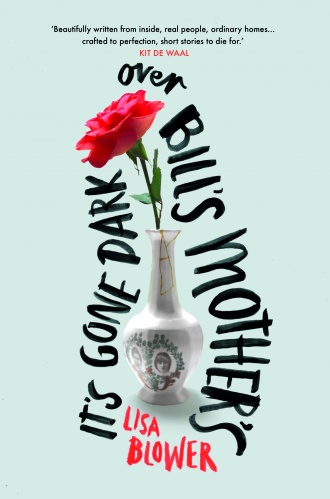This is the last article you can read this month
You can read more article this month
You can read more articles this month
Sorry your limit is up for this month
Reset on:
Please help support the Morning Star by subscribing here
UNFLINCHING descriptions of sex, violence and addiction are less controversial than in the past but writers and publishers remain reluctant to tackle important aspects of human experience. Their refusal to talk about class led the writer James Kelman to accuse the literary establishment of treating people without money as if they should be swept under the carpet.

Lisa Blower lifts that carpet to explore lives deemed superfluous by business, media and government. Her well-rounded and convincing characters have limited choices as they face deprivation, disappointment and a relentless struggle for survival.
Blower has been compared to Alan Bennett — the monologue is her preferred form and she shares his knack for revelation through detailed observation and telling omission.
The similarity ends there. Blower’s purpose is to find a voice for people often dismissed as inarticulate. Her narratives are direct and accessible but there’s variety of both situation and style. Some are traditional monologues, others more dialogue driven; some are related from the first-person point of view, others use second-person; some are related by people struggling to survive, others by observers who have escaped the circumstances of those less fortunate.
Handled badly, a second-person narrative reads like a choose-your-own adventure game but Blower’s deft writing creates deeper engagement with the dilemmas of her characters.
Theres a nod to Great Expectations in story The Land of Make Believe, in which the talented but struggling working-class Dee tries to fit in at Cambridge University and wants to understand her mother Ruthie, who works as a prostitute.
A touching and powerful tale, it’s freighted with wit and subtle complexities. Blower’s stories are grittily realistic but she relishes ambiguity and enjoys injecting humour into the darkest of situations. Her readers are treated with as much respect as her characters.
In another standout story, The Trees in the Wood, Mia experiences sleep deprivation as a result of grief, while Laura’s sleeplessness is caused by panic and anxiety. An affecting tale of women’s resilience in the face of tragedy, its many-layered narrative assesses the power of character-driven fiction in increasing our understanding of science and, as it does so, it highlights the risks modern life poses to sleep and health.
Alma’s life spirals out of control when she loses her job due to the Icelandic banking collapse in Dirty Laundry. Gradually, we learn of her other source of anguish and the story ends with a sense that all may not be lost.
This is a fine collection of 20 tough but tender tales by a writer who celebrates the lives of uncelebrated people with compassion and caustic wit. It’s by no means a depressing read — there are moments of hope as well as hardship.
Published by Myriad Editions, £8.99.











